The project will support the three colleges to become CoVE ecosystem facilitators. In this way the colleges take a leading role in developing and implementing activities that support horticulture farmers and other private climate smart agriculture stakeholders in their transition to become climate- and water-smart producers. Each college focuses on farmers in their respective region. By building and facilitating these network, staff, and students at the colleges gain knowledge and skills to create Vocational Excellence in the domain of climate- and water-smart horticulture.
The three-year project will end in December 2025.
Revenue diversification pathways in Africa through bio-based and circular agricultural innovations.
The DIVAGRI project proposes a wide range of bio-based innovative solutions adapted to specific conditions in target countries. Ecosystem restoration in combination with diverse crop production in regenerative agricultural systems, mobile biorefineries for biomass conversion to high-value compounds and bioenergy, and the highly innovative clay-based micro-irrigation system “SLECI" (Self-regulating, Low Energy, Claybased Irrigation) are solutions developed by DIVAGRI. In addition, building on community participation and co-development of collaborative business models, the project will enable smallholder farmers to increase income and generate new economic opportunities while guaranteeing food security, real rural opportunities, and sustainability.
The focus of this project is not only on the primary production sector but also on the food and bio-based industries, thus promoting new partnerships between producers, processors, retailers and consumers
Website
FRAUNHOFER INNOVATION PLATFORM FOR WATER-ENERGYFOOD NEXUS AT STELLENBOSCH UNIVERSITY
The Fraunhofer-Gesellschaft and Stellenbosch University consolidated their long-standing collaboration with the establishment of this strategic platform in 2020. The goal of the partnership is to develop sustainable solutions to promote water, energy and food security. An online kick-off meeting was held on 28 May 2020, with participants from Fraunhofer Alliances SysWasser and Energy, Headquarters, Stellenbosch University's Water Institute (SUWI) and Center for Renewable and Sustainable Energy Studies (CRSES), followed by a strategic online workshop on 9 July 2020. Two of the research projects supported by the platform includes the ICON water supply technologies for desalination and microbial control in food production for Africa (WASTEC) project, coordinated by Dr Marelize Botes; and MSc student, Ms Carli Louw as well as the DemoMed-Ver project to develop decentralised mobile care with autonomous test platforms formuse in developing countries led by Dr. Martin Hamann (FIP).
Website
The ICU Microbiome Project: the ecology of AMR
Funding: Grand Challenges / Gates Foundation. SUWI is the project leader with collaborators from Canada and USA.
Key focus: To evaluate findings by studies showing that elimination of exposure to the Intensive Care Units in hospitals' water supply reduces rates of infection with pathogens. To trace the origin of these pathogens – whether from the bulk water or the hospital environment.
MAR2PROTECT
The project will provide a holistic approach to prevent groundwater contamination from the impacts of climate change and global change, through different innovative technologies.
The main idea consists in a tool supported by Artificial Intelligence that will receive real-time information from sensors placed in risk locations where the technologies will be implemented, among other vitally important information (innovative technologies, preferences of social agents, risk assessment).
The tool will allow a new generation of Managed Aquifer Recharge approaches to improve groundwater quality and quantity. The core of the innovative Managed Aquifer Recharge approach is the M-AI-R Decision Support System which will incorporate technological and societal engagement information using an Artificial Intelligence-based evaluation to improve groundwater quality and quantity.
Website
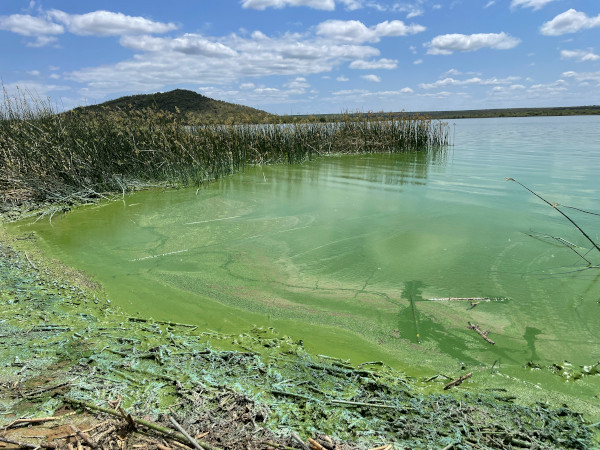

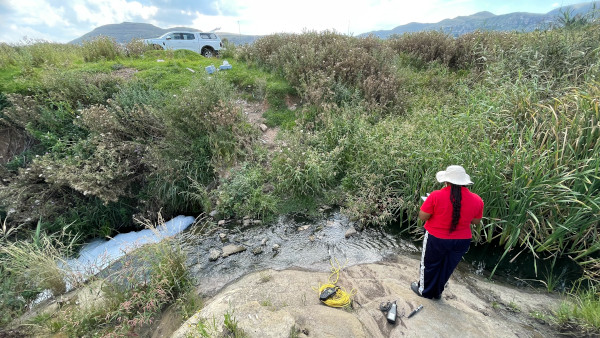
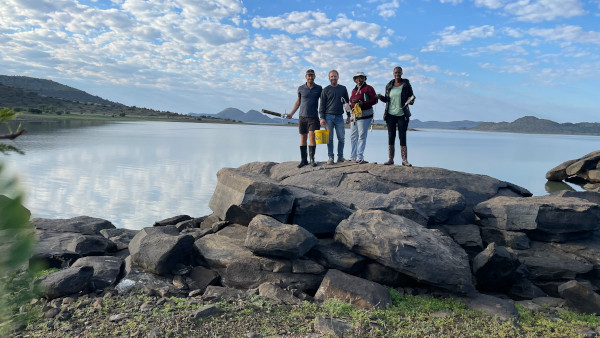
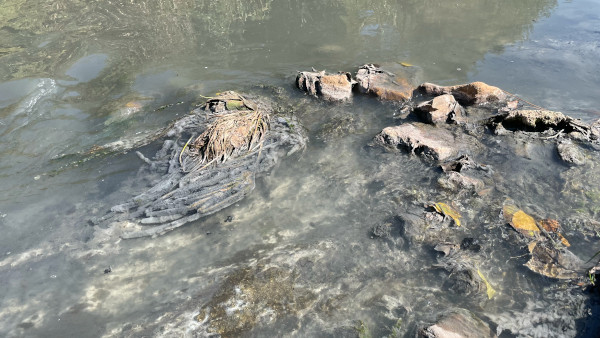

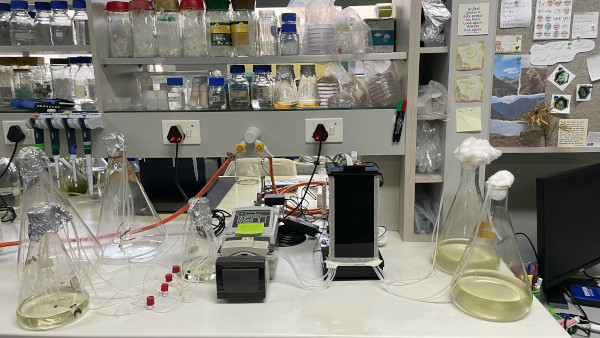
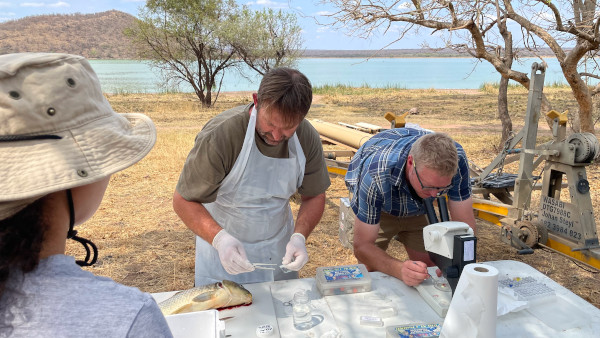
Platform of Vocational Excellence Water Scale-up (PoVE)
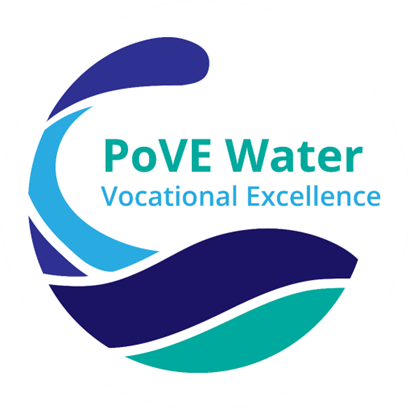
The “Platform of Vocational Excellence Water Scale-up" is a project funded under the Erasmus+ programme of the European Union. It is a joint initiative between:
| Stellenbosch University |
Centrum voor Innovatief Vakmanschap Water, The Netherlands |
| Rand Water |
Learning Hub Friesland, The Netherlands |
| Energy & Water Sector Education Training Authority |
Platform Beta en Techniek Katapult, The Netherlands |
| Agriculture Sector Education Training Authority |
Vitens, The Netherlands |
| Nkangala TVET College |
Yuverta VET College, The Netherlands |
| Vhembe TVET College |
Maastricht University - Maastricht School of Management, The Netherlands |
| Capricorn TVET College |
Hanse-Parlament, Germany |
| Lovedale TVET College |
Malta College of Arts, Science & Technology, Malta |
| |
Water Services Cooperation, Malta |
| |
Mendel University, Czech Republic |
| |
CREA Hydro & Energy, Czech Republic |
| |
Secondary Industrial School of Civil Engineering Brno, Czech Republic |
| |
Lipka – School Facility for Environmental Education, Czech Republic |
| |
Women Engage for a Common Future, Germany |
| |
Riga Technical University, Latvia |
| |
RTU Olaine College of Technology, Latvia |
| |
Daugavpils Construction Technical School, Latvia |
| |
Vidzeme Technology and Design Vocational School, Latvia |
| |
Latvian Water and Wastewater Works Association, Latvia |
| |
Järvamaa Vocational Education Centre, Estonia |
| |
Estonian Waterworks Association, Estonia |
| |
European Forum of Technical and Vocational Education and Training, Belgium
|
The aim of the project is to support technical and vocational students, to become agile, digitally skilled, and sustainable orientated water sector professionals. To achieve this, the project focuses on interlinking the different CoVEs Water, developing digital and virtual learning materials, and increasing student's, teacher's, and professional's competence for international activities, amongst others.
This project builds on the partnership that was initiated in the Pilot PoVE Water project. By continuing to build on the national CoVEs Water in the Netherlands, Malta, Czech Republic and Latvia, which were established in the pilot project, each CoVE expands by including neighbouring countries in the partnership. The following four CoVEs Water are, united under the international PoVE Water umbrella, are:
- CoVE Water West-EU under the coordination of Centrum voor Innovatief Vakmanschap Water
- CoVE Water Mediterranean under the under the coordination of Malta College of Arts, Science & Technology.
- CoVE Water Baltics under the coordination of Riga Technical University.
- CoVE Water Central EU under the coordination of Mendel University
A fifth and new CoVE Water is currently being established in South Africa under the coordination of Stellenbosch University.
The project has a duration of four years and will finalise in December 2026.
Website
BUILDING AN EARLY WARNING SYSTEM FOR COMMUNITYWIDE INFECTIOUS DISEASE SPREAD: SARS-COV-2 TRACKING IN AFRICA VIA ENVIRONMENT FINGERPRINTING.
This project involves the use of wastewater-based epidemiology (WBE) for the surveillance of SARS-CoV-2 infection in communities. This approach captures both symptomatic and asymptomatic individuals and thus serves as an added surveillance resource to trace the spread of infection in a community. Weekly surveillance of SARS-CoV-2 RNA fragments at selected wastewater treatment works (WWTWs) was performed in Cape Town/Stellenbosch, Lagos (Nigeria) and Bath/Bristol (United Kingdom) to track current infection hotspots and identify future outbreaks. In addition, routine weekly sampling in sewer lines originating from various locations such as student residences, centres, and office buildings at SU's Tygerberg Medical Campus, revealed positive signals at the onset of the second wave of COVID-19 infections in South Africa, before any clinical identification of infection was recorded. The Stellenbosch University research team include Prof Gideon Wolfaardt (Microbiology), Prof Wolfgang Preiser (Virology/NHLS Tygerberg), Dr Edward Archer (Microbiology), Ms Noluxabiso Mangwana (Microbiology/SAMRC) and Mr Ludwig Brocker (Microbiology).
SERPIC
The Sustainable Electrochemical Reduction of contaminants of emerging concern and Pathogens in wastewater treatment plants effluent for Irrigation of Crops project (SERPIC) will develop an integral technology, based on a multi-barrier approach, to treat the effluents of wastewater treatment plants to maximise the reduction of contaminants of emerging concern.
Website
STELLENBOSCH RIVER FILTER
The River Filter, located on the banks of the Eerste River in Stellenbosch, aims to remediate polluted river water for subsequent use in produce irrigation and to further our understanding of plant and microbial interaction in the uptake and removal of micropollutants. The project is a collaboration between Wildlands, Distell, and Stellenbosch Municipality, with funding from First Rand, Stellenbosch University Central Analytic Facility, and the National Research Foundation (NRF).

